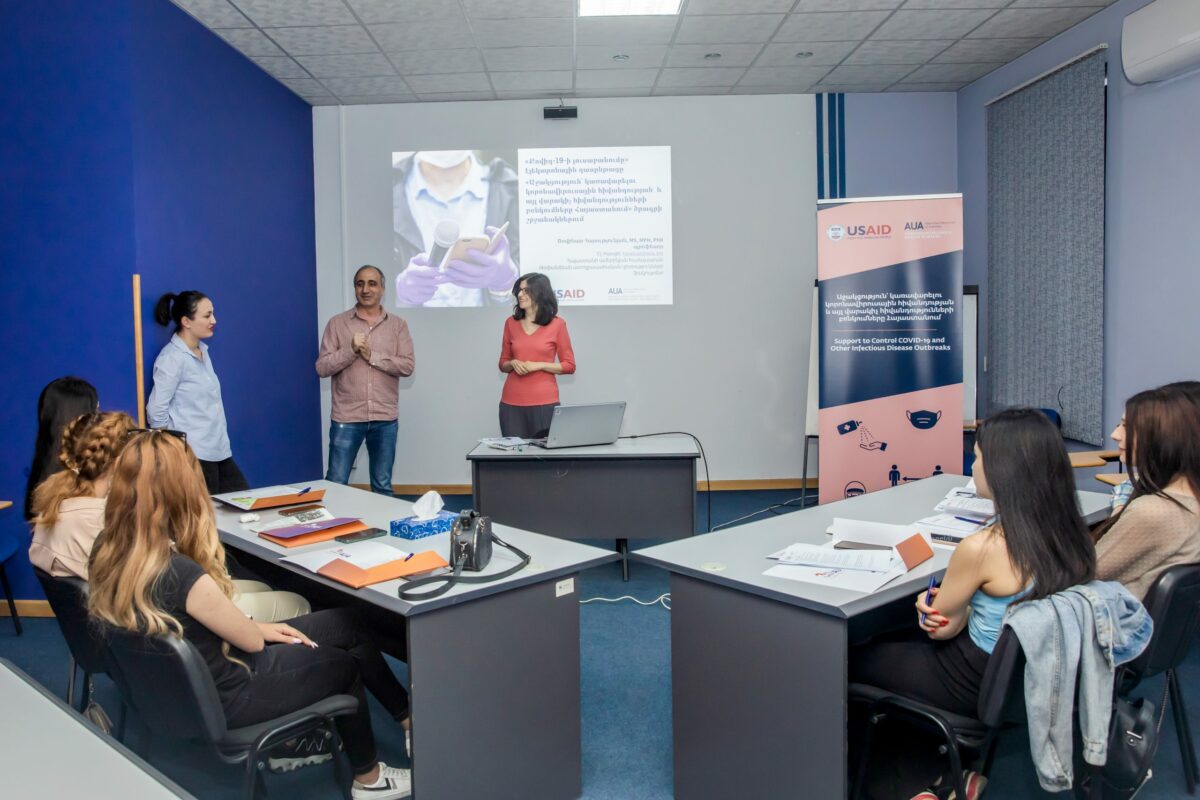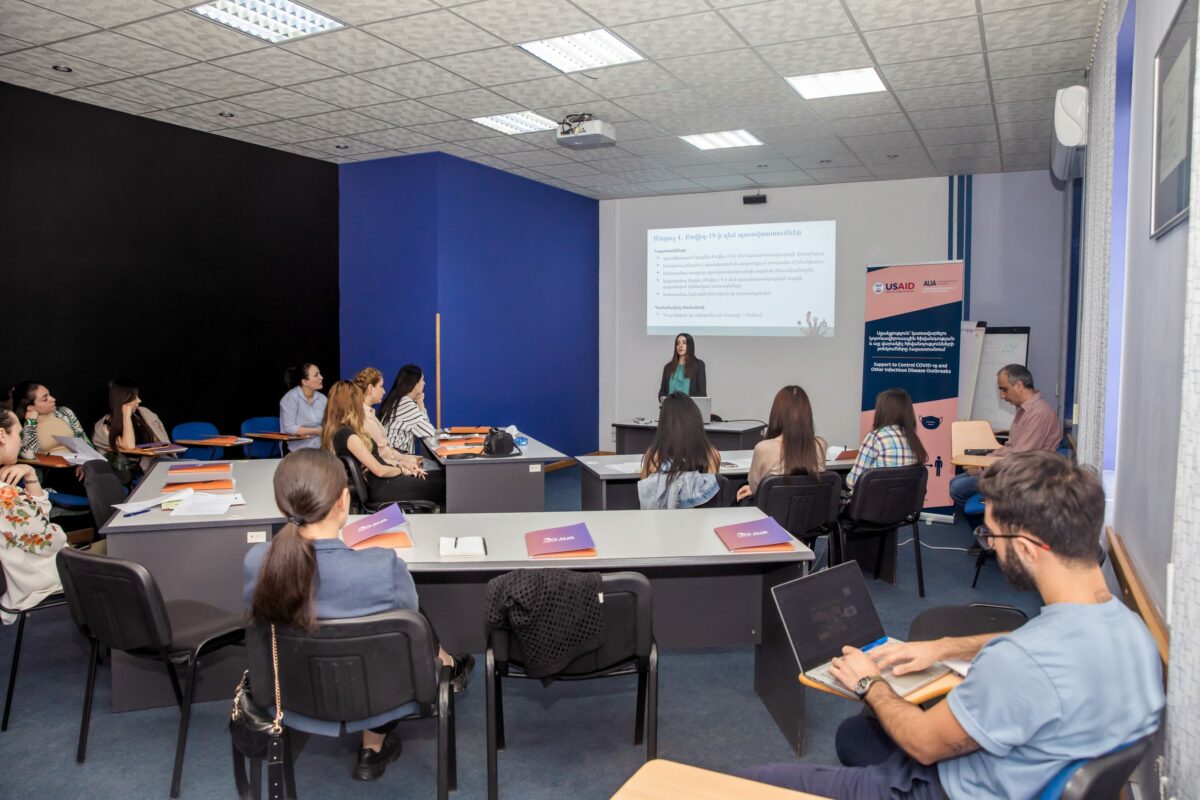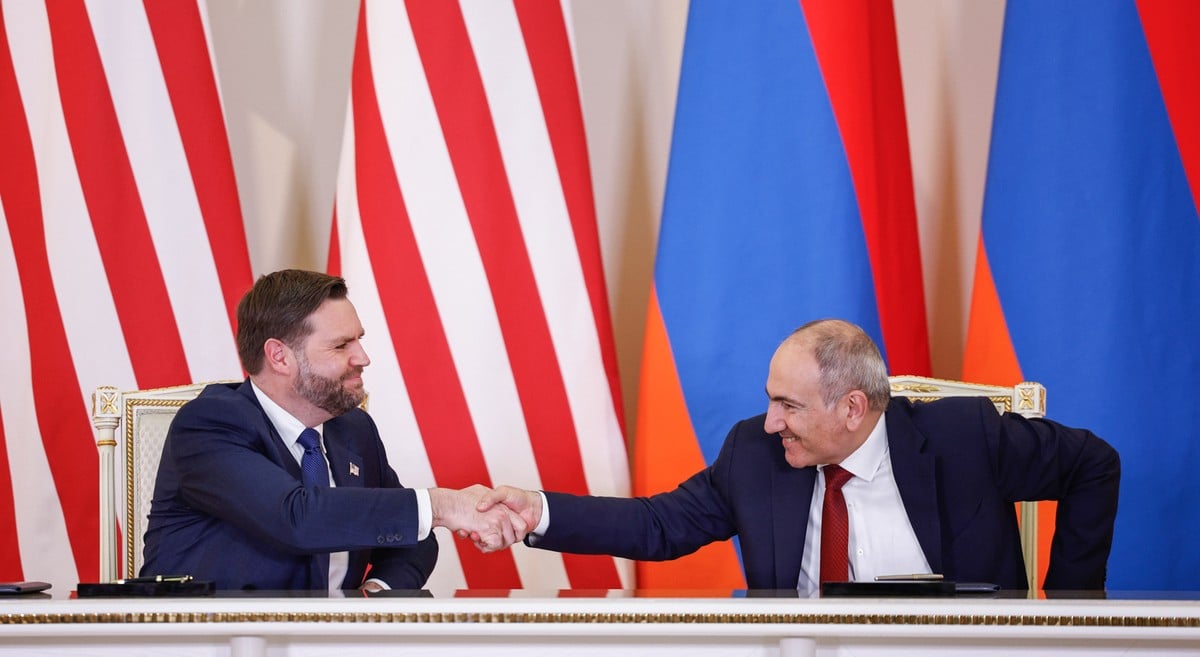The online course for journalists, lecturers, students, and researchers on covering COVID-19 and other epidemics in a literate way consists of 5 modules, each of which has its own direction, and practical tasks, which are mainly in the format of tests, and checking the participants’ awareness.
The course helps not only to acquire but also to strengthen knowledge of COVID-19 – its origin, distribution, effect, treatment, etc., and to study the spread of misinformation about the infection through various tools. There are also separate modules on the nuances of vaccinations, their types, effects, and coverage.
Through various stories, journalists learn how to present people’s stories ethically, in a way that does not cause harm or panic in society.
Armtimes.com journalist Aghunik Hovhannisyan is one of the journalists who passed the course. She says that she was especially impressed by the sections on working with sources.

“In the first days of the outbreak of the infection, we had an information crisis and it was mainly filled with misinformation coming from social networks. We realized very late that it is possible to find specialists and use international information platforms,” said Aghunik.
According to her, the course is interesting for specialists in different fields of journalism: fact-checkers, editors, special correspondents, etc.
“The presented material was built on the examples brought from the international media, which helped to remind us of our omissions and mistakes while covering the topic of COVID. We can’t say that we have overcome the virus, as long as there is danger, our journalists must be vigilant,” she said.
Another participant who successfully completed the course, Viola Voskanyan, is still a student studying at the Journalism Department of the Faculty of Culture of Yerevan State Pedagogical University. She says this was her first online training experience.
“My knowledge about the infection was very superficial, I would find it difficult to write a journalistic article on that topic. Now I know the details, I know how to write on this topic and most importantly on what specific topic and for whom. The course provided a lot of valuable skills that we will need in the future to cover other topics,” she said.
Raising public awareness, which is greatly promoted by the media, is important for a competent fight against outbreaks of coronavirus and other infectious diseases. The program aims to equip journalists with new and practical knowledge so that they can join the struggle, preventing the spread of COVID and other new and old infections.

The training was prepared by the Avetisyan Onanian Center for Health Services Research and Development at the American University of Armenia (AUA) Turpanjian School of Health in partnership with the Thomson Foundation in Support of Managing Outbreaks of Coronavirus and Other Infectious Diseases in Armenia.
The Coronavirus and Other Infectious Disease Outbreak Management Program strengthens Armenia’s national potential to respond to outbreaks of coronavirus and other communicable diseases by facilitating emergency preparedness and response strategies in public health emergencies. The project is funded by the United States Agency for International Development (USAID) and implemented by the American University of Armenia Foundation in partnership with the Ministry of Health.
“Journalists and media professionals have played a key role in the COVID-19 epidemic. People everywhere are exposed to unprecedented flows of information and misinformation and rely on journalists to find accessible and reliable information,” said Tsovinar Harutyunyan, a professor at AUA Turpanjian Faculty of Health Sciences.
According to her, the Thomson Foundation is a pioneer of honest journalism and helps journalists build fair, independent, and credible journalism. “We hope that our course will help Armenian journalists get acquainted with the best examples of international journalism in the field of epidemiological coverage and apply the acquired knowledge for the benefit of the Armenian society.”
The course is open to all those interested. You can register at any time and go through it in full or by choosing the modules that are most interesting and important for your work.
Gayane Asryan







